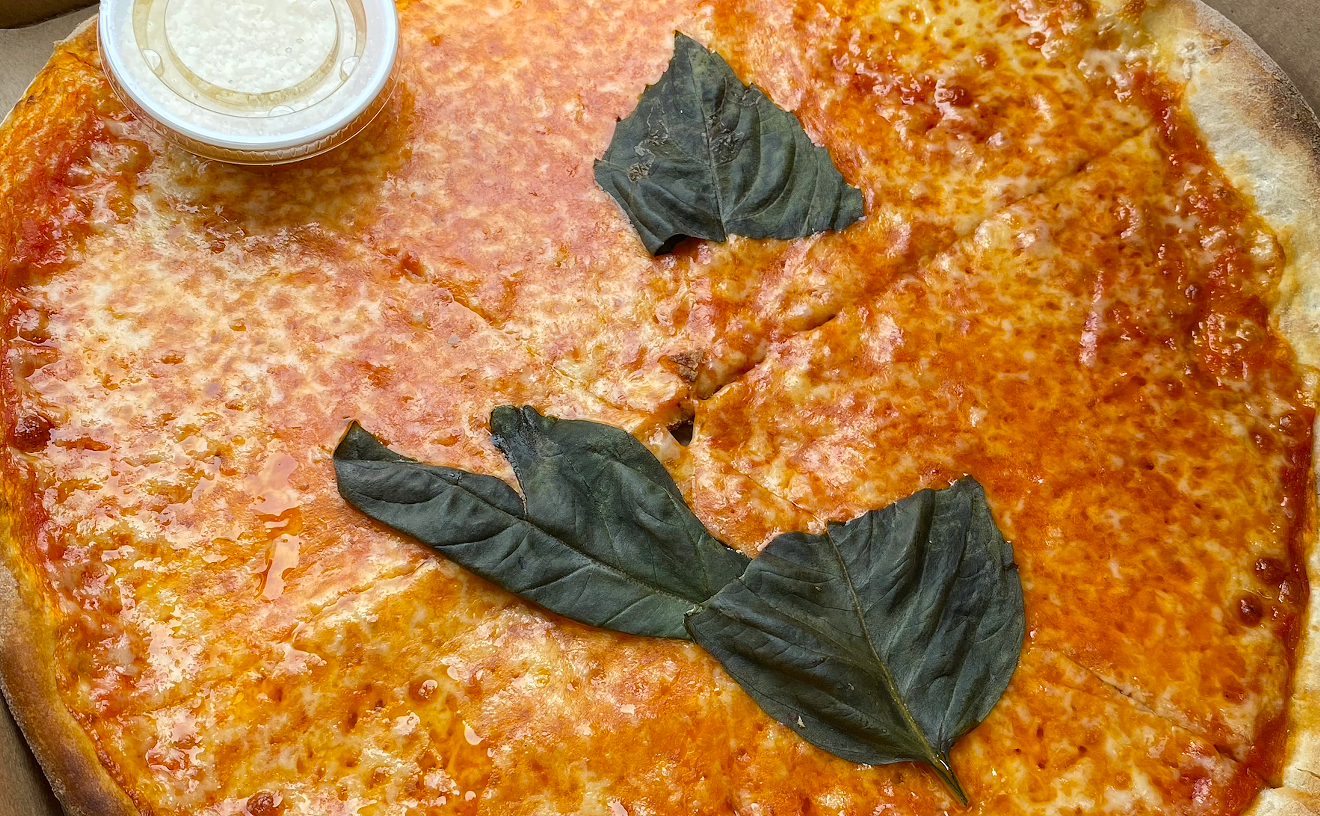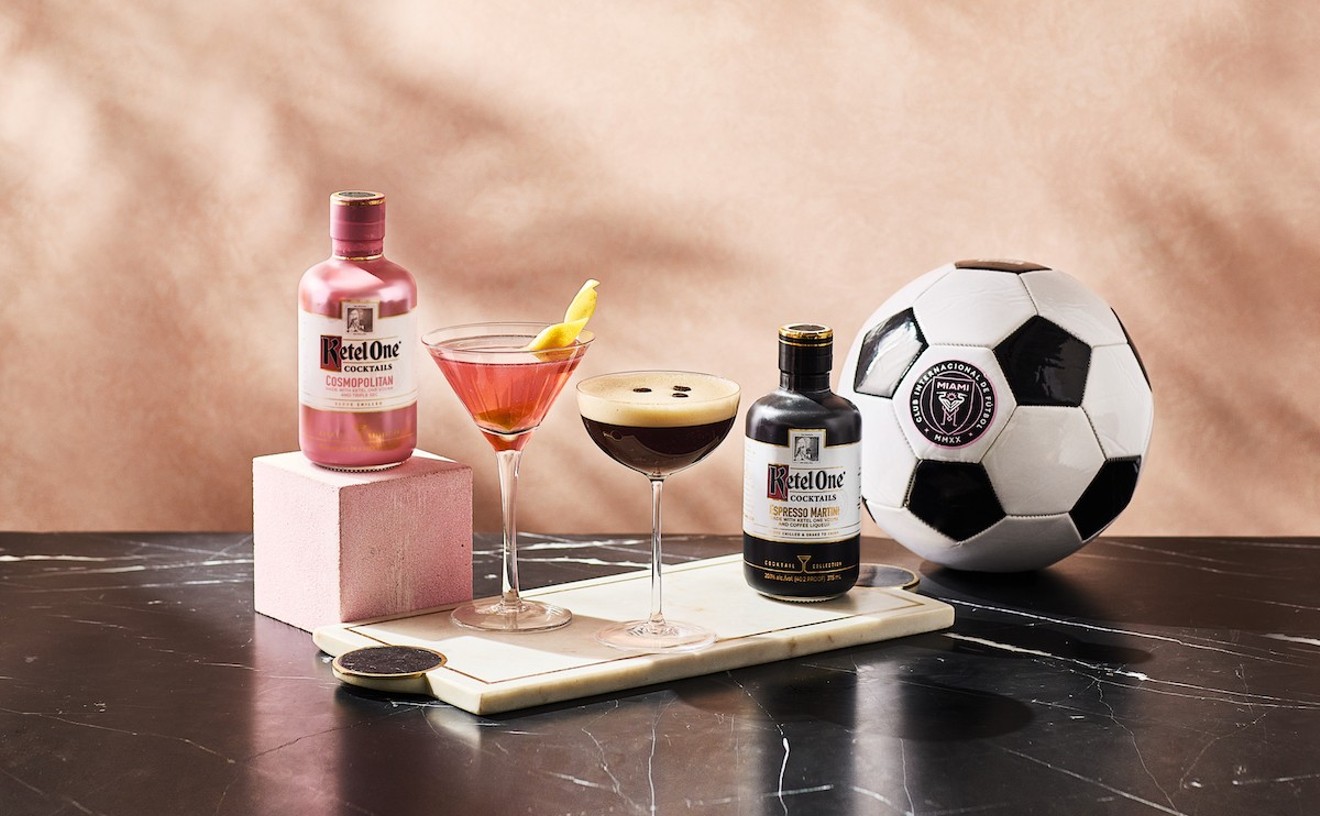I met Mark Ortell, owner of Amazonia Brazilian Churrascaria, over a Cuban sandwich last year. We were sitting at the bar at Crazy Cuban in Boynton Beach drinking beer when Ortell mentioned he had two restaurants in Aruba. When he said he planned to open two more, Amazonia and Aquamarine, in Palm Beach Gardens, we discussed dining prospects in the Gardens. It seemed like restaurateurs and foodies had hit some culinary jackpot there, as though the Gardens' very streets, slippery with truffle oil, beckoned irresistibly. They were boom times. I packed up the rest of my medianoche and wished Ortell luck, not that I thought he needed it.
I was wrong. Ortell needed luck, and even more pressingly, he needed investors with bottomless pockets to keep him afloat through another bust in the cycle of Palm Beach development.
Ortell opened Amazonia last summer. I went to take a look recently after the Palm Beach Post said it had the best restaurant design of 2007. I saw myself getting cozy beside a fire, in the glow of the signature meat-lust of Brazilian churrascarias, with a glass of rosy-dark Malbec in one hand and, in the other, a forkful of bacon-wrapped sirloin.
Churrascarias are usually convivial. A history of deprivation coupled with the most beautiful beaches and bodies in the world has shaped the genial Brazilian spirit, which is fueled by indigenous music that automatically moves their shapely booties. A typical rodizio-style steak house is a sensual, visceral, unabashedly gluttonous place, with swords filled with dripping meat wielded by handsome gauchos who keep coming back until you can't consume another morsel. The bar, with its multicolored salads of shrimp and salmon, mushroom and artichokes, peppers and slaws, roast potatoes, and black beans and a list full of cheap, luscious South American wines, constitute a fantasy of plenty imported from a landscape of hunger. The churrascaria checks any gnawing fear of famine. There, for an hour or two, you will have enough.
In Palm Beach Gardens, en route to Amazonia, we scurried along the avenues of Legacy Place one cold night hoping to find the Brazilian spirit of ginga. It has no exact translation in English, but ginga means a sort of free, slow sway, like an alert relaxation. That one's relatively easy to define. As we huddled against the wind, however, we couldn't help but wonder what kind of "legacy" could be embodied in this 400,000-square-foot development. Built by contentiously divorced developer Dan Catalfumo, Legacy Place demands that the unsuspecting visitor make an Orwellian leap of logic as well as suspend standard English usage.
Catalfumo's legacy is a shiny faux village. As authentic as a theatrical backdrop, replete with Linens 'n' Things, Lane Bryant, Barnes & Noble, and Publix Greenwise, it is primarily one more place to shop. It's a legacy of nail salons and of luxury condos whose values are in screaming freefall. Visit it around 8 p.m. on a Thursday and you'll hear your footsteps echo beneath its Mediterranean arches. Catalfumo's legacy is so empty, it's as though he's bequeathed you your very own lifestyle center.
Catalfumo has a splendiferous office off I-95 by PGA Boulevard, in a castle fit for a Saddam or an Idi. I imagine him looking out from the top floor as far as his eye can see and thinking "Mine — it all belongs to me." But there's trouble beyond those palace walls. The developers build it and the optimistic churrascarias and bistros come, but small entrepreneurs are rarely resilient enough to withstand the black-robed and scythe-toting business lull that often follows the sort of overdevelopment that is Catalfumo's specialty.
I knew something was out of joint when we walked through Amazonia's doors. The place felt cold — as in temperature but also in design. Its hard glass walls and metal ceilings absorb heat and refract sound. You enter through a strange little lobby tricked out like a bordello, with red velvet flocked wallpaper, a royal-blue pressed tin ceiling, and a two-story, backlit photo of a gaucho on a rearing stallion. Depending upon the path you choose, left or right, you find yourself in either an empty bar or a cavern with an unattended hostess station and an opulent salad spread. A couple finishing dessert registered our aimless wandering and pointed us toward the place the hostess would be, if she had been.
I was disappointed. Just a few tables were occupied: the helpful couple, a six-top of 20-somethings, a trio of businessmen, and later, around 9:30, a Brazilian family with a passel of kids. A pall hung over things. The same three songs played on a loop, including "Acquarela do Brazil," which was famously parodied in Terry Gilliam's cult movie Brazil. We thought about the dazed diners in that film's bombed-out restaurant scene. After four or five loops, we felt surreal.
Our polite waiter seemed disappointed too, perhaps because he'd imagined a more lucrative adventure when he took the job. We sat in one of the curved booths, which at least offered the illusion of warmth, as we shared a bottle of Argentine wine. You pay one price ($38.95) for all you can eat except drinks and dessert. Many churrascaria fans make dinner a competitive sport; the object: to steadily diminish the price you pay per ounce of food. You close your ingest-outlay ratio by pigging out. You have to go easy on the cold vegetable dishes, however, which management furnishes to suavely deflect you from the expensive charcoal-roasted meat.
The self-serve cold bar at Amazonia had colorful and tasty if not particularly creative dishes — creamy potatoes, cocktail shrimp, cooked salmon, tiny tart pickles, Krab salad, marinated vegetables, bowtie pasta, mixed greens, crusty bread, and garlicky garbanzo beans. We found a hunk of pork gristle in our black beans but otherwise had no complaints. Next, we turned our wooden icon green-side-up to signify that we were ready for the 16 different meats that Amazonia advertises. Perhaps because it was a slow night, the house seemed to be serving only three-quarters of them. The gauchos started us off with grilled chicken and chunks of filet wrapped in bacon, both running with juices and coated with the irresistible sheen of bacon fat. They brought more filet, thinly sliced off their swords, and delicately spiced Brazilian sausages straining against crisp skins. Then sirloin, rib eye, and the house special, picanha. Our gaucho called picanha the "best cut" of the sirloin; on my beef map, it appears to be the tri tip, a small triangle roast cut from the bottom of the sirloin, a cut Americans won't find in most butcher shops or restaurants. With a lightly charred rim of fat, it's a meat that stirs something primal, as forceful and suggestive as filet mignon is cultivated and restrained. The picanha and the rib eye were wonderful. The roasted lamb leg smelled and tasted like a campfire in a paddock.
We asked specifically for beef ribs, which were not offered, and then wished we hadn't. They were stringy. We saw no sign of chicken wings with pineapple or hearty flank-cut pork or parmesan-crusted pork loin or crispy chicken legs — all promised on Amazonia's website. Sides served at the table fell flat — chewy and dull yucca frita, fried bananas doused in cinnamon (don't make the mistake of eating these with your beef), mashed potatoes — when a little color could have brightened the mood.
Of desserts, only the papaya cream ($5.95) justifies imperiling your price-per-ounce ratio: a cold, smoothly gelatinous cream laced with papaya juice, with a faintly rosy color, it's as refreshing as a sponge bath after the festival of flesh. A thicker consistency would have perfected it. Both the flan and the cheesecake, soft, heavy, and dense, were too much for already overtaxed digestions.
Leaving, I think we all felt a little gloomy. It was as if we were dragging behind us, down those echoing streets with brand-new pavers, the shadows of fortunes squandered. Amazonia isn't a bad restaurant, but there are jollier churrascarias within an hour's drive, in real cities with more honest legacies.










